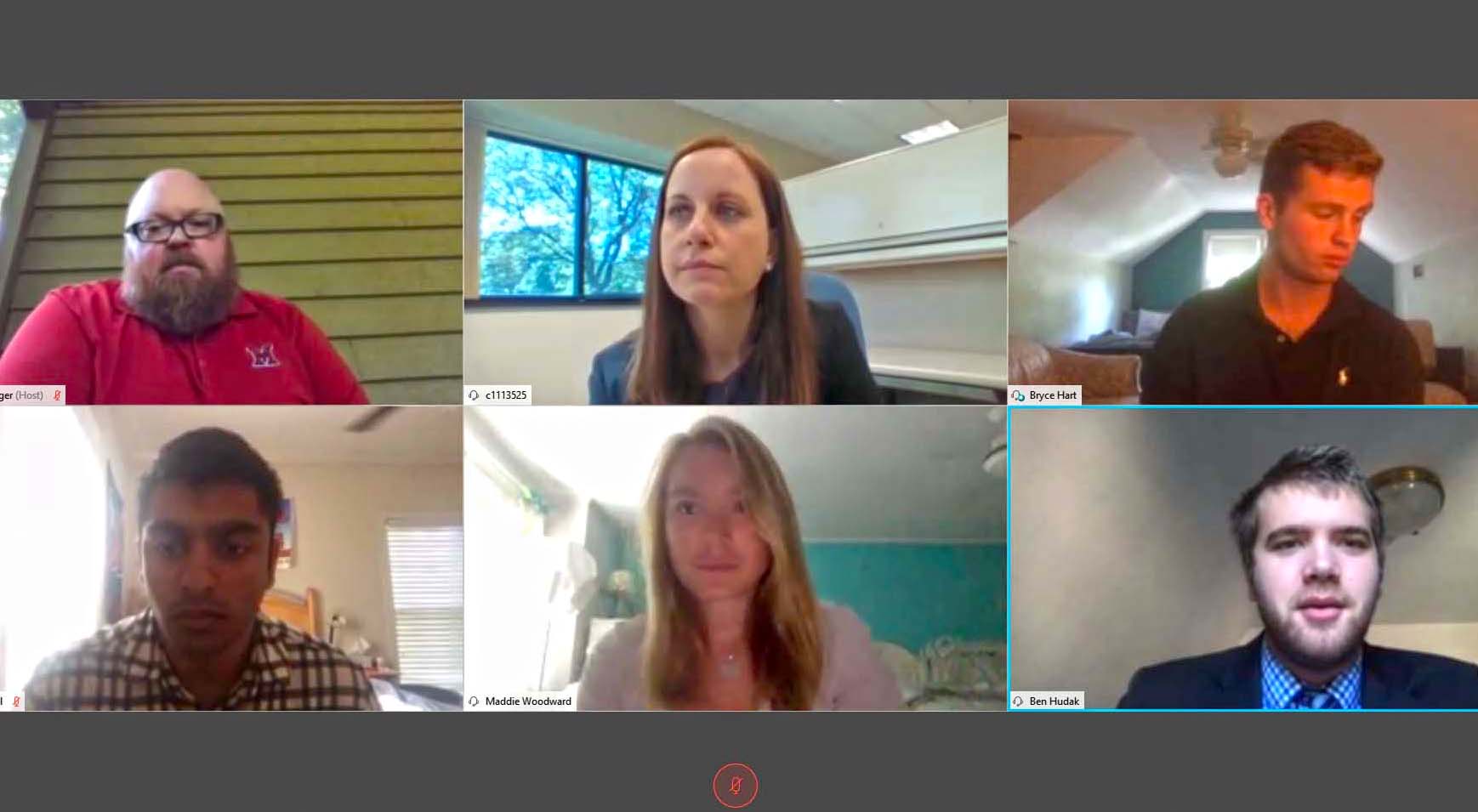Miami PRIME's success as online program may lead to lasting changes


While all Farmer School classes had to make a rapid transition to virtual learning this spring due to the coronavirus pandemic, this summer’s Miami PRIME program was the first to adapt to an online format from start to finish.
Program director Jon Grenier made a considerable number of changes to the four-week program, which is designed to provide critical business skills to non-business majors. The program is considered a thematic sequence and meets half of the requirements for a business minor. In previous years, the program consisted of two three-hour class sessions each day, mock interviews, networking events, a business etiquette dinner, and a client project that included a visit to the client and presentations in front of the client at the end of the program.
The first thing Greiner wanted to make sure happened was that the program was as high-touch as possible under the circumstances, especially considering it had the second-highest number of participating students in the program's history. “I wanted every professor to interact with the students. I didn't want it to be, ‘OK, we just posted videos and here's some assignments.’ The students still felt like they got to know the professors.”
Grenier said he found that several of the aspects of the program turned out even better than usual because of the virtual aspect:
- “It was a lot easier to get people to participate in the mock interviews as recruiters because they could do it from wherever they were. They didn't have to travel to Oxford to take part.”
- “They previously had phone calls with the clients about midway through the project. But now that everybody knows how to use video conferencing so easily, they had WebEx calls with the clients instead, which I think actually went better.”
- “I think the final presentations where were just as good, if not better than usual. I think that there was less stress on the students because they were not going to stand in front of people. They can be in their comfort zone at home and feel a little less intimidated to be on a WebEx than a live presentation. Because of that, I think there were probably less nerves and they actually did a little bit better on it.”
Some aspects of the program, such as the etiquette dinner and the client field trip, couldn’t make an effective transition to the virtual world, but Grenier said that he feels 90 to 95 percent of the program was as effective online as it would have been in person.
Helen Koons, assistant director of Miami PRIME, said the virtual technology gave her opportunities that she would have never had in face-to-face teaching. “When I was meeting with teams, I would record the meetings,” she recalled. “I could literally go back and relive it. That was a huge plus, because then I could re-watch the meeting, and then could go in the next day that I was with them and say, ‘OK, so let's work through this, because there was some information that wasn't clear to you and there were some issues.’”
Students said that the idea of a virtual class gave them some qualms, but that Miami PRIME turned out better than they expected. “Obviously 2 hours of online class is going to be rough no matter how you slice it, but these professors did their best to make it as interesting as possible,” Ryan Bergen said. “They did this by incorporating interactive activities for students to engage in more of a conversation based class rather than watching lectures. This made the learning experience more enjoyable.”
“In comparison to my expectations, PRIME far exceeded them. I was beyond impressed with the organization, communication, and work that all professors and director had put into this program to make sure we still got the PRIME experience but in a virtual setting,” Olivia Giles remarked. “I remember at the very beginning of the program feeling very overwhelmed just looking ahead at the things I had to do. However, everything was so clear about what needed to be done and when. The structure was exceptional for this program being all online for the first time.”
Grenier said that what he and the other faculty members involved in the program learned this summer is leading him to make changes to how the program takes place even after the pandemic passes. “Moving forward, I think it's going to be a hybrid version where we're in-person, but we're going to do a lot of the program online.”
“One of the overall benefits of the program that was really unexpected was that I think the students that completed the program got a very valuable experience in terms of working virtually and managing their time. They had all sorts of meetings that they had to go to with their team, with their professors. They had tasks for the day, and most of them were able to get into a groove and figure out how to manage all of this,” Grenier explained. “That wasn't one of the learning objectives of the program, but it became a big part of what the students got out of it.”

